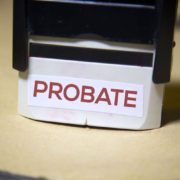The Three Flavors of Special Needs Trusts: #3 Self-Settled Trusts
The federal “Special Needs Trust Fairness Act,” enacted in December of 2016, changed the law to allow individuals with special needs to create their own special needs trust. Ohio law, in response, has changed to coincide with this recent change. Currently, a mentally or physically disabled person may create a self-settled trust to hold their own assets and avoid them being counted for Medicaid or other public assistance program eligibility. Usually the need arises to make this type of trust when a person with special needs receives a legal settlement or inheritance while already eligible and receiving government assistance.
In a nutshell, “self-settled” special needs trusts are simply trusts established by the disabled beneficiary with the beneficiary’s own money and assets. The devil, however, is in the details. Self-settled special needs trusts are, by regulatory requirements, only available to those persons who are 1) disabled and 2) are under 65 years of age. Further, the trust must be appropriately drafted to include language that mandates that the cost of Medicaid services actually paid on the individual’s behalf will be paid back to Ohio at the individual’s death. Thus, in an indirect way, the Department of Medicaid and other government program will get their money and be reimbursed, at the point of death, but the individual reliant on government assistance can still maintain eligibility. Therefore, both parties win. Note, however, the use and drafting of self-settled special needs trusts is nuanced. For example, with these trusts once a beneficiary reaches 65, the trust can no longer be funded with new assets or money. Yes, what is already in the trust will remain protected, but flexibility and control is lesser than with other types of special needs trusts. As such, always consult an experienced Cleveland area estate planning attorney when deciding which type of special needs trusts is appropriate for you and your family.
A self-settled special needs trusts are often referred to as a “Medicaid payback trust.” Both names refer to the same type of trust, however, the later name focuses on the primary characteristic, and requirement, of a self-settled special needs trust, in that any Medicaid resources or services received by the beneficiary will be paid back from the assets housed within the trust. A partial corollary is a Miller trust. A Miller trust houses income for those receiving nursing home care that would otherwise put them over the income thresholds for the Medicaid income cap. The income is kept in trust and used to pay for care, but relevant here, names the State of Ohio as a beneficiary under the trust. Thus, the State of Ohio can recover the total amount of Medicaid payments made to an individual after death.
Self-settled special needs trusts are different from Miller trusts in that they allow for a much greater breath of resources allowed to be placed in trust and does not set the State of Ohio as a direct beneficiary under the trust. Naming a person or entity as a trust beneficiary grants them certain rights and privileges which, in certain circumstances, can lead to headaches and issues for the special needs person and their families.
Often self-settled special needs trusts are estate planning instruments of last resort. Usually within the context of an unexpected windfall going to a person with special needs. Going the self-settled route also places administrative labor and costs of the trust on the special needs person. Further the requirements of specific drafting to be legally operative under Ohio law is usually something laypersons are ill-equipped to do themselves. As such, always consult an experienced Cleveland area estate planning attorney when deciding which type of special needs trust is good for you and your family. The stakes are too high to do things ill-informed.











